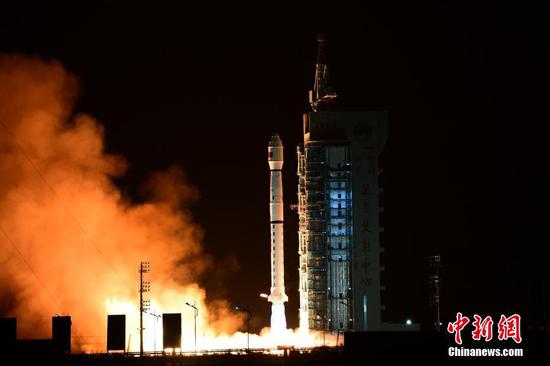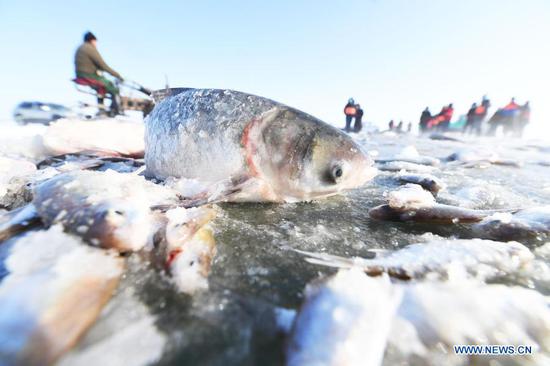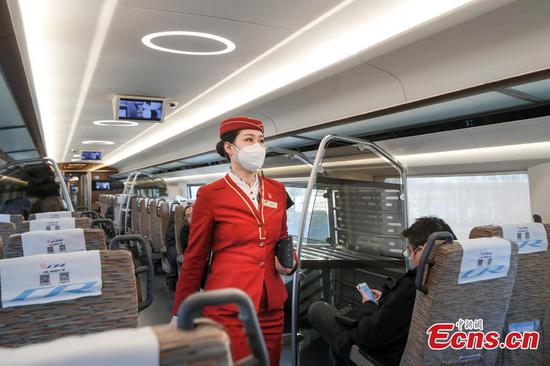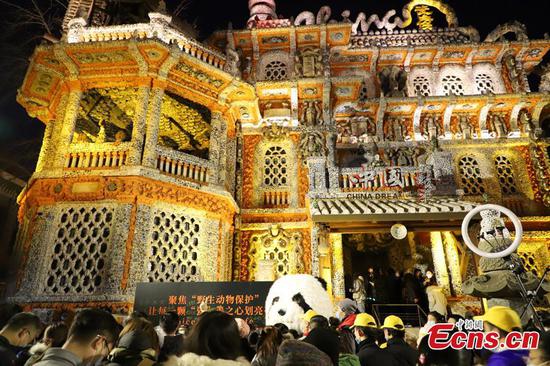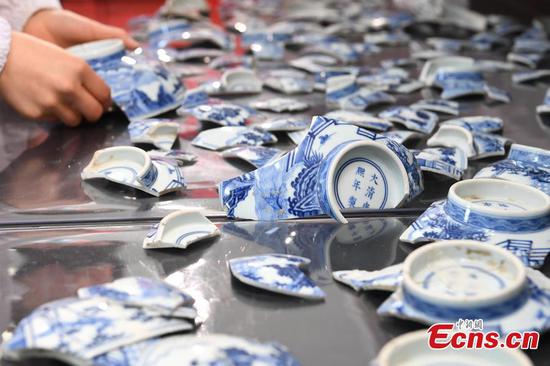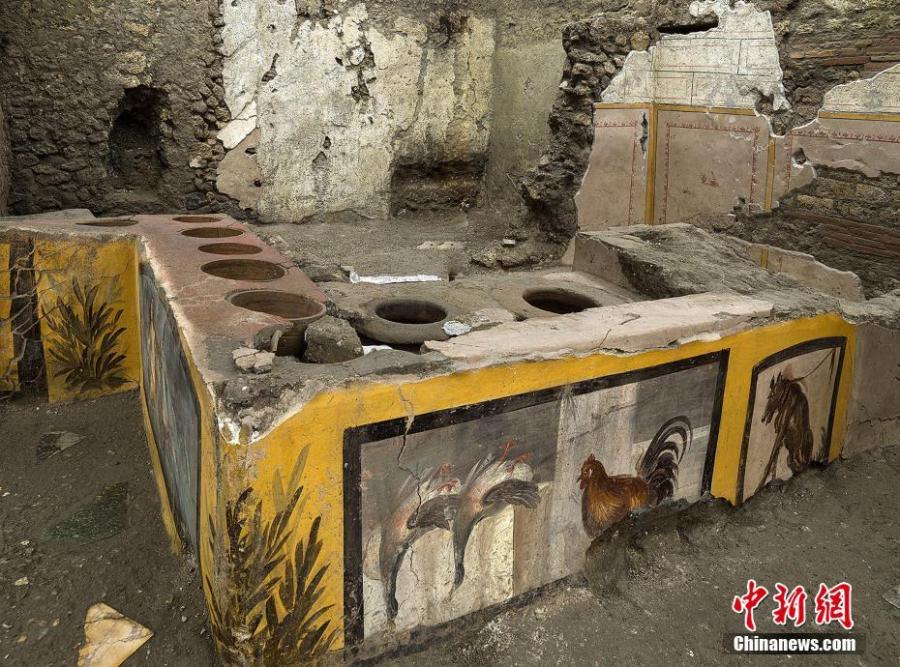
Photo shows the thermopolium in the Pompeii archeological park, near Naples, Italy, Dec. 26, 2020. A "fast food" shop from the ancient Roman city of Pompeii, which was destroyed in a volcanic eruption almost 2,000 years ago, is to open to the public next year. The food counter, known as a thermopolium, would have served hot food and drinks to locals in the city. (Photo/IC photo)
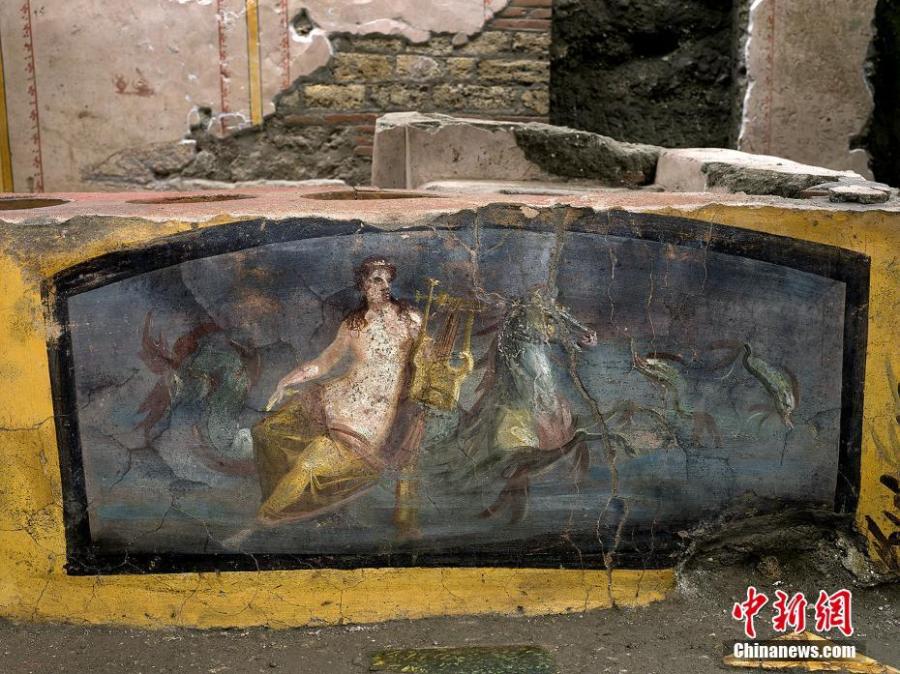
A fresco is seen on an ancient counter uncovered during excavations in Pompeii, Italy, Dec. 26, 2020. A "fast food" shop from the ancient Roman city of Pompeii, which was destroyed in a volcanic eruption almost 2,000 years ago, is to open to the public next year. The food counter, known as a thermopolium, would have served hot food and drinks to locals in the city. (Photo/IC photo)
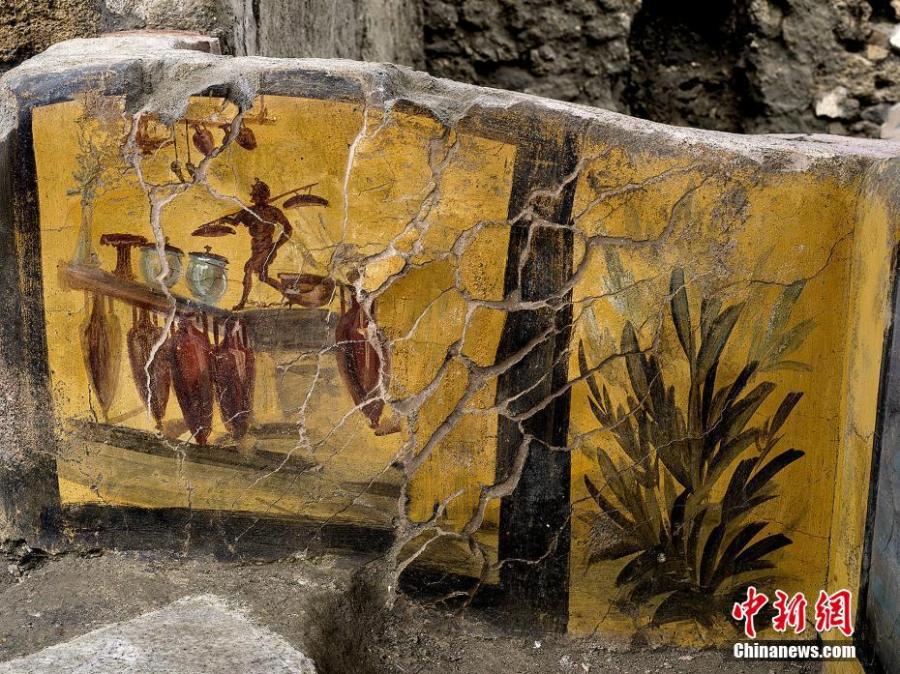
A fresco is seen on an ancient counter uncovered during excavations in Pompeii, Italy, Dec. 26, 2020. A "fast food" shop from the ancient Roman city of Pompeii, which was destroyed in a volcanic eruption almost 2,000 years ago, is to open to the public next year. The food counter, known as a thermopolium, would have served hot food and drinks to locals in the city. (Photo/IC photo)
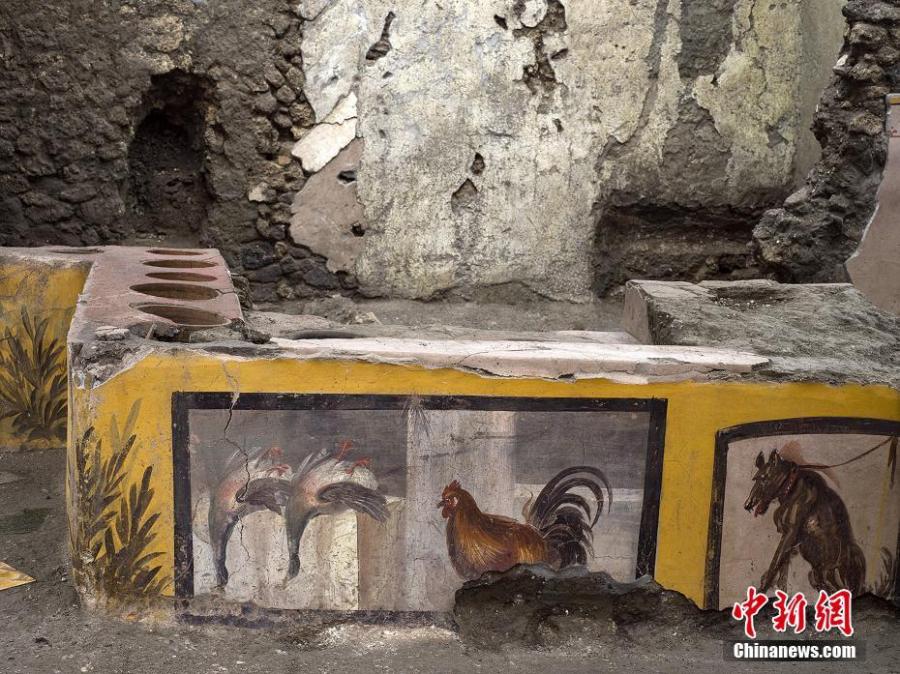
Photo shows the thermopolium in the Pompeii archeological park, near Naples, Italy, Dec. 26, 2020. A "fast food" shop from the ancient Roman city of Pompeii, which was destroyed in a volcanic eruption almost 2,000 years ago, is to open to the public next year. The food counter, known as a thermopolium, would have served hot food and drinks to locals in the city. (Photo/IC photo)










